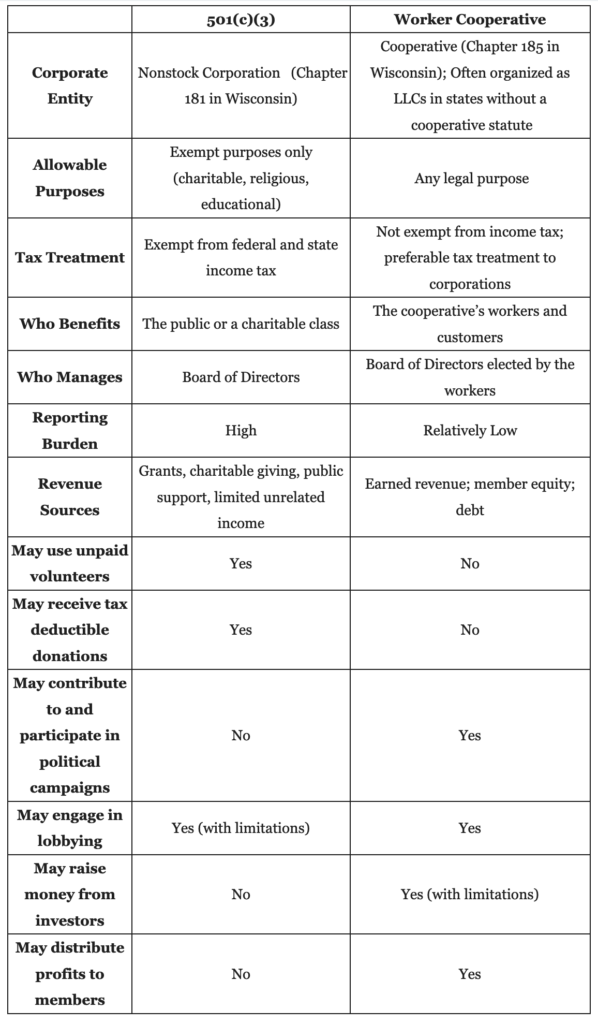Dear clients, friends, and Wisconsin nonprofit community,
We are excited to introduce our new associate attorney, West Foster. West joined us this May after graduating from the University of Wisconsin Law School. Prior to joining Scholz Nonprofit Law, he interned for Chief Judge Peterson at the Federal District Court for the Western District of Wisconsin and worked at UW’s Law and Entrepreneurship Clinic, where he provided free legal support to cooperatives, nonprofits, and small businesses. He brings to Scholz Nonprofit Law his passion for cooperatives and will expand the kinds of social enterprise that we support.
On that note, let’s talk about social enterprise. Here at Scholz Nonprofit Law we often talk to budding community organizations that have decided to operate as 501(c)(3) nonprofits because they are familiar with the model. But the 501(c)(3) is one of many models available to groups looking to make a positive impact. Before starting a 501(c)(3), community-minded groups and individuals should take time to explore other social enterprise models.
Today we’re spotlighting worker cooperatives. Worker cooperatives are businesses owned and managed by their workers. The worker cooperative model lets workers share the profits created by their labor and develop stronger business acumen and industry knowledge by participating in management. Additionally, money made by a worker cooperative stays in the community because no distant investor accumulates the cooperative’s profits. Worker cooperatives operate off earned revenue rather than grants and donations, so they’re an attractive alternative to the 501(c)(3) for those interested in building organizations that aren’t reliant on charitable giving.
For those curious, we have included a comparison of some of the key features of 501(c)(3) nonprofits and worker cooperatives.

If you’re part of a worker cooperative in need of legal support, are interested in starting a worker cooperative, or just want to learn more about the model, reach out to us! We are looking forward to supporting Wisconsin’s growing cooperative movement.
If you have any questions,
Scholz Nonprofit Law is here for you. Please let us know how we can help by emailing Jessica, Melissa, Jeff, Sarah,